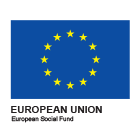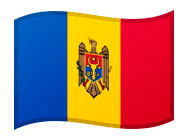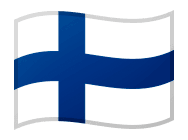
Two years Twinning project started 1.3.2019 and ended 31.5.2021. The project was suspended for three months in 2020 due to the covid 19. Trainings has been conducted by around 30 experts from three EU member states. Approximately 400-500 representatives from Moldovan VET sector has been trained by the project.
Beneficiary administration
- Ministry of Education, Culture and Research of the Republic of Moldova
Twinning Sector
- Social Affairs and Employment and EU funded budget: 1,300,000 EUR
Lead member state
- Omnia, the Joint Authority of Education in Espoo Region, Finland
Junior member states
- Foundation Innove, Estonia
- Strata, Government Strategic Analysis Center, Lithuania
Key persons
- Project leader: Mr Sampo Suihko, Finland
- Junior project leaders: Ms Katri Targama, Estonia and Mr Giedrius Viliunas, Lithuania
- Resident Twinning Adviser: Mr Karl Holm, Finland





Objectives of the project
Overall objective
To contribute to the upgrade of the education system in Moldova in line with EU and Bologna process best practices and quality education principles.
Specific objective
To assist and support the Ministry of Education, Culture and Research and related VET bodies/institutions and actors to further implement the national VET strategy 2013-2020 by improving the capacities of key-institutions in charge of quality assurance, with a particular focus on teachers’ competences and collaboration with private sector.
Two components which are divided in four sub-components:
Component 1 – Improvement of Quality Assurance mechanisms for VET and LLL at all levels of education
- Strengthening the institutional and operational capacities and competencies of the staff within the National Agency for Quality Assurance in Education and Research (ANACEC)
- Supporting the implementation of the National Qualifications Framework (NQF) in the Republic of Moldova
Component 2 – Enhancement of capacities at VET provision level for cooperation with private sector
- Strengthen the capacity for effective cooperation between vocational training providers and the private sector for lifelong learning
- Supporting teachers within the Centers of Excellence in IPT to become multipliers based on the pedagogical training of staff from the rounded institutions
The main counterparts of the project are the representatives of:
- The Ministry of Education, Culture and Research with VET Department, LLL Department, NQF Department, Pre-university Department,
- The National Agency for Quality Assurance in Education and Research (ANACEC),
- VET Centers of Excellence and affiliated VET institutions.
The meaning of the project
A major EU-funded Twinning project in the field of education will end in May, during which the development of VET education in Moldova has been supported through quality assurance, working life and adult education. Finland, Estonia and Lithuania have been involved in the 2-year project. These countries, together with Moldovan actors, have had an excellent capacity to promote areas important for the development of vocational education structures.
The project has been meaningful and opened up concrete pathways for development. Moldova's VET training has long been part of European general education structures, but the project has both identified challenges and clarified development tools. As always, one project cannot and should not be solve every challenge, but from here it is good to move on.
Vocational education is an integral part of the structures of the education system, but at the same time it is important to remember that vocational education and training is always part of the whole educational package and in the long run it is important to ensure the quality of all levels of education, both in Moldova and in other countries.
Some main achievements of the project reported in the end of its implementation
- Development of recommendations on improving the external evaluation process based on European experience (procedures, methods, principles, etc.) and revision of the External Quality Assessment Methodology for the authorization of provisional operation and accreditation of study programs and technical, higher education and ongoing training institutions according to ESG (Standards and Guidelines for quality assurance in the European Higher Education Area);
- Supporting ANACEC staff in development of Self-Assessment Report to become a full member of ENQA (European Association of Quality Assurance Agencies in Higher Education)
- Observations on the external evaluation run by ANACEC and generation of comments and recommendations for improvement of accreditation procedures.
- Revision of the Methodology for elaborating the Qualification Standards;
- Development of current situation and problems analysis, development of objectives, actions, indicators as part of the Strategy for the Development of NQF in Moldova with a plan that this document will be subsequently approved by Government Decision;
- Analysis of need for the unification of terms, concepts in all legal documents related to the National Qualifications Framework.
- Analysis of requirements and starting the process of Development of the NQF self-assessment report for becoming member of EU NQF Agencies;
- Supporting the development of the Adults Education Program, which will be approved by Government Decision;
- Supporting the development of the Roadmap for the implementation of the Adults Education Program;
- Organizing trainings with teachers from Continuing Education Centers on innovative methods of learning / teaching / assessment; training based on work-based learning methods. More than 300 teachers were trained;
- Development of the website - repository for digital materials elaborated by 5 Centers of Excellence and Pedagogical College Alexei Mateevici;
- Development for more than 40 teachers the digital skills for teaching process: blog development; shooting of video materials; learning digital skills assessment methods; elaboration of digital materials in various formats with the use of specialized applications in the field;
- Website (iptdigital.md) Centers of Excellence in VET and Alexei Mateevici college have created digital learning materials for Moldova’s VET sector with a guidance of Twining STE’s. The website is a material and information repository and is publicly open platform to visit and use. The website has been launched early 2021. It is maintained by the CoEs (and technically by CEITI). The significance and effectivity for digitalizing and supporting Moldovan VET sector is remarkable.
- Standards and Guidelines for Quality Assurance in the European Higher Education Area
- European Association for Quality Assurance in Higher Education
Text Karl Holm, Resident Twinning Adviser